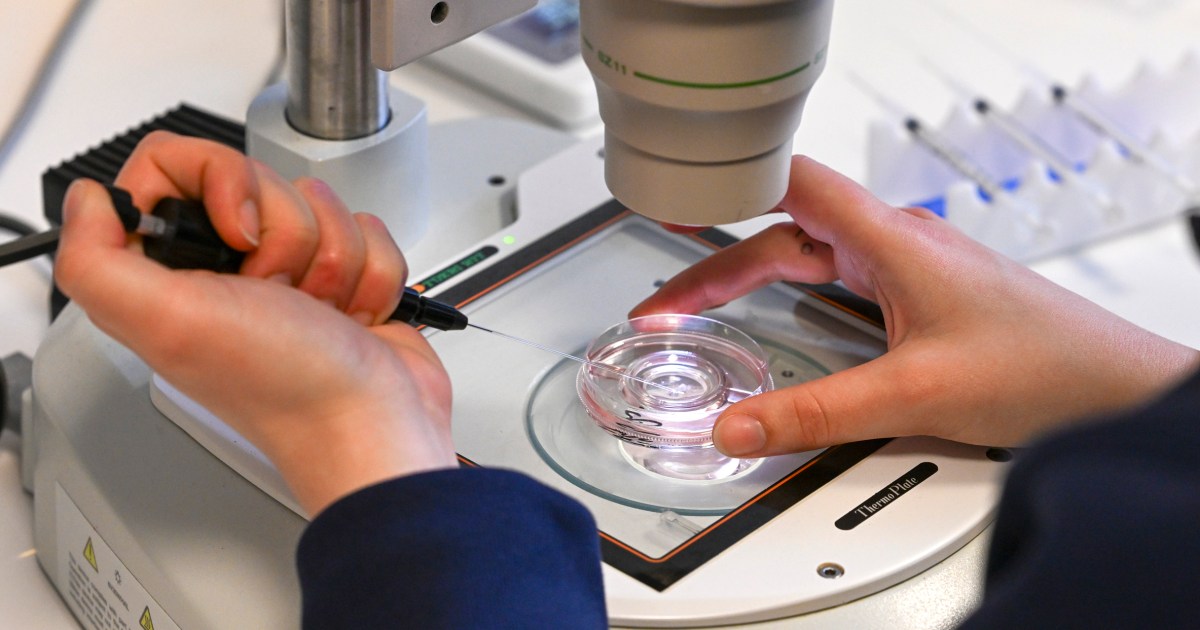The Supreme Court has aggravated the sentences of two of the former Arandina players convicted of forcing a 15-year-old teenager in November 2017. The Criminal Chamber has upheld the appeal of the prosecutor and the accusations to increase the punishment of The two have been convicted, but they have been sentenced to nine years in prison, a sentence one year less than the one that would have corresponded before the reform of the Law for the Comprehensive Guarantee of Sexual Freedom, known as
the law of only yes is yes
.
The court has applied the new norm for being more favorable to the aggressors.
It is the first time that the Supreme Court applies the new legislation, the entry into force of which has led to dozens of sentence reductions for sexual offenders.
The discrepancy of interpretations between the Prosecutor's Office and various provincial courts has put the focus on the high court, waiting for it to unify criteria.
But the Supreme Court judges, for now, are reluctant to establish rigid doctrines and have limited themselves to pointing out that the new norm may be applied to the benefit of the accused when it sets a lower sentence than that which would correspond to the old one, "but analyzing case by case , and not globally”, according to a note sent by the high court.
01:10
Llop does not rule out modifying the law of only yes is yes until analyzing what the TS says
The Minister of Justice, Pilar Llop, during a press conference after the Council of Ministers, at the Palacio de La Moncloa, on November 29, 2022, in Madrid. Photo: Carlos Luján |
Video: EFE
The first application that the Supreme Court makes of the new legislation leaves, however, several conclusions.
The Criminal Chamber endorses the interpretation that most courts are making of article 2.2 of the Criminal Code ("those criminal laws that favor the defendant will have retroactive effect, even if a final sentence had been handed down when they entered into force and the subject was serving a sentence") and it departs from the criteria of the Prosecutor's Office, which rejected sentence reductions "as a general rule" as long as the punishment imposed with the previous law continues to be possible with the new one.
But the Supreme Court shies away from setting a single criterion that can be perceived as a mathematical formula that the lower courts will apply in each sentence they review.
He considers that each case must be studied individually and rejects the reduction being applied globally.
Its first pronouncement also supports sentence reductions, both in the upper and lower sections of the forks as well as in the intermediate ones, which leaves a wide margin of interpretation to the judges of the lower courts, so it is foreseeable that they will continue producing discrepancies of criteria that, in the end, will lead to the Supreme Court.
The review made by the high court of
the Arandina case
It is not a review of the sentence with a final sentence like those that have been known up to now, but rather the response to the appeal of cassation on the sentence handed down by the Superior Court of Justice of Castilla y León, which imposed three and four years in prison on the two ex-footballers.
In theory, in these cases the fifth transitory provision of the Penal Code of 1995 does not apply (“In custodial sentences, this Code will not be considered more favorable when the duration of the previous sentence imposed on the act with its circumstances is also taxable according to to the new Code") on which the Prosecutor's Office and some courts are basing their criteria but, in any case, the third transitory one (which for appeals urges to ask the parties to rule on how it affects the new law, as did the Supreme).
Nevertheless,
In the
Arandina case
, three footballers from this club were tried (Carlos Cuadrado,
Lucho
, 24 years old; Víctor Rodríguez,
Viti
, 22, and Raúl Calvo, 19) who in November 2017 invited a 15-year-old girl to their house in Aranda de Duero (Burgos) to have sex with her.
Once there, she refused and they forced her.
The Burgos Provincial Court initially sentenced the three former players to 38 years in prison, but the Superior Court of Justice of Castilla y León later acquitted one of them and reduced the punishment of the other two to four and three years in prison by changing the classification of aggression to abuse and by "the closeness of age and proximity in the degree of maturity" of the athletes and the minor (the Penal Code raised the age of sexual consent from 13 to 16 years in 2015).
The Prosecutor's Office appealed that sentence to the Supreme Court and before the new law came into force, it had requested 10 years in prison for the two footballers convicted by the Autonomous Court, a request that it maintained with the new norm.
Following the criteria set by the State Attorney General, Álvaro García Ortiz, the public ministry considers that the sentences should not be lowered because they fell within the range provided for in the
law of only yes is yes
for these crimes.
In the event that the appeal is upheld, the facts, according to the Prosecutor's Office, should be punished with between six and 12 years in prison, so the 10-year sentence that was requested for them falls within that range.
And if the Supreme Court dismissed the appeal, the Prosecutor's Office demanded that the punishments imposed by the autonomous court be maintained, which also fell within the section provided by the
law of only yes is yes
(between two years and three months and four years and medium).
The court has upheld the public prosecutor's challenge and has suppressed the mitigation applied by the regional court, based on the closeness in age between the aggressors and the victim and the degree of maturity of the latter, and which implied a sharp reduction in sentence.
However, the Criminal Chamber does not agree to the 10 years requested by the public prosecutor, but leaves the punishment at nine years and one day.
The Prosecutor's request was the minimum sentence provided for in the previous Penal Code for the section applicable to the two defendants (from 10 to 12 years, the upper range of the sentence provided for in the old article 183 4b).
But the
law of only yes is yes
extends this range to between 9 and 12 years and the Supreme Court has applied
the new minimum expected to the
Arandina case .
Judge Ángel Luis Hurtado has voted against the majority decision of the chamber, who understands that the mitigation that the Superior Court of Justice had already applied should have been maintained, with a slight reduction in sentences, considering the new norm to be more beneficial as well.
Feijóo: "The Government continues to refuse to amend its botch job"
THE COUNTRY
The president of the PP, Alberto Núñez Feijóo, has interpreted the Supreme Court ruling on the Arandina players as "another sentence that assumes that sexual offenders do not receive the penalty they would have if the 'law of only yes is' were not in force Yes".
"There are already dozens who have seen their sentences reduced and the government continues to refuse to amend its botch job," the party leader, who has been demanding the repeal of the rule, pointed out on Twitter.
The general coordinator of the PP, Elías Bendodo, has also referred to the ruling of the high court: "There is no smoke screen to cover the abuse of the soft law with the aggressors", "The Government was waiting for the Supreme Court to speak and has spoken and has reduced a sentence from 10 to nine years.”








/cloudfront-eu-central-1.images.arcpublishing.com/prisa/5ZMW4547SVFJVK3BLIHX23EZWM.jpg)


/cloudfront-eu-central-1.images.arcpublishing.com/prisa/KMEYMJKESBAZBE4MRBAM4TGHIQ.jpg)


